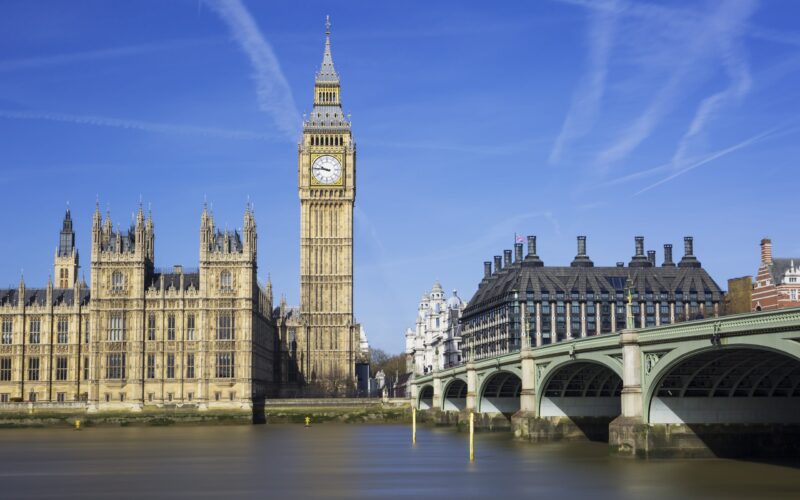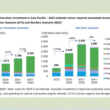A new report commissioned by Greenpeace UK has proposed a temporary National Renewal Tax on the extreme wealth of the super-rich, which could generate a minimum of £130 billion ($168 billion) over the next five years. The report, authored by King’s College London economist Ben Tippet, suggests that this revenue could significantly improve the lives of tens of millions of people across the UK by funding critical climate and social initiatives, including home insulation, lowering energy bills, making public transport cheaper, and helping over 3 million workers in high-carbon industries transition to green jobs.
The tax, set at an annual 2.5% on individual wealth exceeding £10 million ($12.9 million), would be in place for the next five years of the Parliamentary term. Its design and implementation are based on recommendations from the 2020 Wealth Tax Commission report. Affecting less than 0.1% of the population, or fewer than 75,000 individuals, the tax could raise between £130 billion and £183 billion, depending on levels of tax avoidance and evasion. The lower estimate assumes a 42.5% evasion rate, generating revenue equivalent to 1% of the UK’s GDP and 3.1% of total annual tax revenues.
The report highlights the disproportionately large carbon footprint of the wealthiest individuals. Globally, the top 1% emit as much carbon as two-thirds of the world’s population, and in the UK, the richest 0.1% emit 22 times more carbon from transportation than low earners. Greenpeace argues that it is only fair that those with the largest environmental impact contribute more to the transition toward a low-carbon economy.
Greenpeace UK’s climate campaigner, Georgia Whitaker said, “There is a £130bn elephant in the room when it comes to how we raise the necessary finances to tackle growing inequalities and the climate crisis. The oversized carbon footprint of the super-rich is a clear rationale for ensuring that they play an oversized role in fixing the crisis that they have an oversized role in creating. It’s time the UK government taxed their vast wealth.”
Whitaker added, “A new National Renewal Tax on the super-rich could raise eye-watering sums of money ensuring that every single home in the UK is warm and cheaper to heat, that bus and train travel is cheaper for all, and that millions of workers are supported into new secure green jobs in the industries of the future, right across the country. By tapping into a fraction of the wealth of a few thousand people we can pay for climate solutions benefitting millions.”
The National Renewal Tax could fund transformative initiatives, including a nationwide insulation programme to upgrade 19 million homes rated EPC D or lower, which would reduce energy consumption and prevent winter deaths by supporting vulnerable households. Public transport could become more affordable, with single bus fares outside of London capped at £1.65 and free bus travel for people under 25. Additionally, a “climate ticket” could provide unlimited rail travel across Britain for just £49.
The tax would also finance retraining programs for the 3.2 million workers in high-carbon industries, enabling them to transition to secure green jobs. Furthermore, it would support agro-ecological farming, helping to enhance food security, clean up rivers, and restore nature, contributing to a greener future for the UK.
The report illustrates how the National Renewal Tax could address rising inequalities and the climate crisis while boosting the economy. It calls for immediate government action to implement this tax in the upcoming Budget to fund climate solutions and public services that benefit millions.
The report is supported by millionaire impact investor and Patriotic Millionaires member, Julia Davies, who also wrote the report’s foreword. She said, “Don’t believe the government when they say the money isn’t there. Because it is. As someone who would be covered by this tax, I can tell you that if you are fortunate enough to have wealth over £10 million, you can afford to make this contribution to a better future for Britain and still enjoy a very good lifestyle indeed.”
Davies added, “This report highlights that a small, temporary tax on our wealth could transform the lives of millions, while tackling the greatest threat humanity has ever faced – the climate crisis – all while investing in a strong forward-facing economy with quality stable jobs for the British people.”
Report author and economist at King’s College London, Ben Tippet said, “The case for a new wealth tax has never been stronger. Wealth inequality has been rising for decades. People are struggling to get by. And much more needs to be done to tackle climate change. This report sets out a fair, balanced and feasible proposal for a new wealth tax on the super-rich to tackle these issues, backed up by sound economic theory and empirical evidence. The expected revenues generated are substantial, even with high levels of potential tax avoidance and evasion.”






















